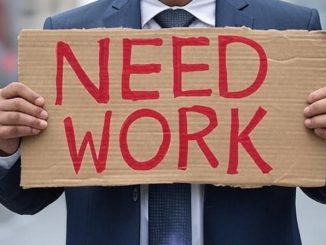Do not confuse American companies with American jobs.
The new stimulus bill, for example, requires that the money be used for production in the United States. Foreign governments, along with large U.S. multinationals concerned about possible foreign retaliation, charge this favors American-based companies. That’s not quite true. Foreign companies are eligible to receive stimulus money for things they make here (as long as the nations where they’re headquartered have signed the WTO procurement agreement). For example, Alstom, the French engineering company, is eligible to receive stimulus funds for the power turbines it produces in Tennessee; Japan’s Sanyo, for the solar cell parts it makes in Oregon; and French-owned Lucent Technologies, for the high-speed internet components it produces here, as well as the research it does here through its research arm, Bell Labs. On the other hand, U.S. Steel may not be eligible for stimulus money for the steel slabs it casts in Ontario, Canada.
I’m not defending the “buy American” provisions of the stimulus bill. I’m just saying they’re not the same as “buy from American companies.” And although these provisions skate close to protectionism and risk foreign retaliation, at least a case can be made that if American taxpayers are footing the bill in order to create American jobs, the jobs should be created, well, here in America.
The same confusion haunts the debate over the auto bailout. Advocates of bailing out GM and Chrysler, and most likely Ford, say America can’t afford to lose “its” auto industry. But this argument leaves out the fact that foreign-owned automakers, already producing cars here in the United States, employ – directly or indirectly – hundreds of thousands of Americans. And at the rate the Big Three are shrinking, and plan to shrink even further — even if they get bailed out –foreign automakers may soon be employing more Americans than the Big Three.
Meanwhile, the Big Three themselves are global. A Pontiac G8 shipped by GM from Australia has less American content than a BMW X5 assembled in the United States. General Motors’ European subsidiaries include Opel and Saab; Ford’s include Volvo.
I’m not arguing against an auto bailout. But it ought to be focused on helping American auto workers rather than helping global auto companies headquartered in America. Why pay the Big Three billions of taxpayer dollars to stay afloat when, even after being bailed out, they cut tens of thousands of American jobs, slash wages, and shrink their American operations into small fractions of what they used to be?
That’s backwards. The auto bailout should help American autoworkers keep their jobs or get new ones that pay almost as well.
Whether it’s stimulus or bailout, policy makers must remember that American companies aren’t the same as American workers – and our first responsibility is to the latter.
- Bulenox: Get 45% to 91% OFF ... Use Discount Code: UNO
- Risk Our Money Not Yours | Get 50% to 90% OFF ... Use Discount Code: MMBVBKSM
Disclaimer: This page contains affiliate links. If you choose to make a purchase after clicking a link, we may receive a commission at no additional cost to you. Thank you for your support!




Leave a Reply